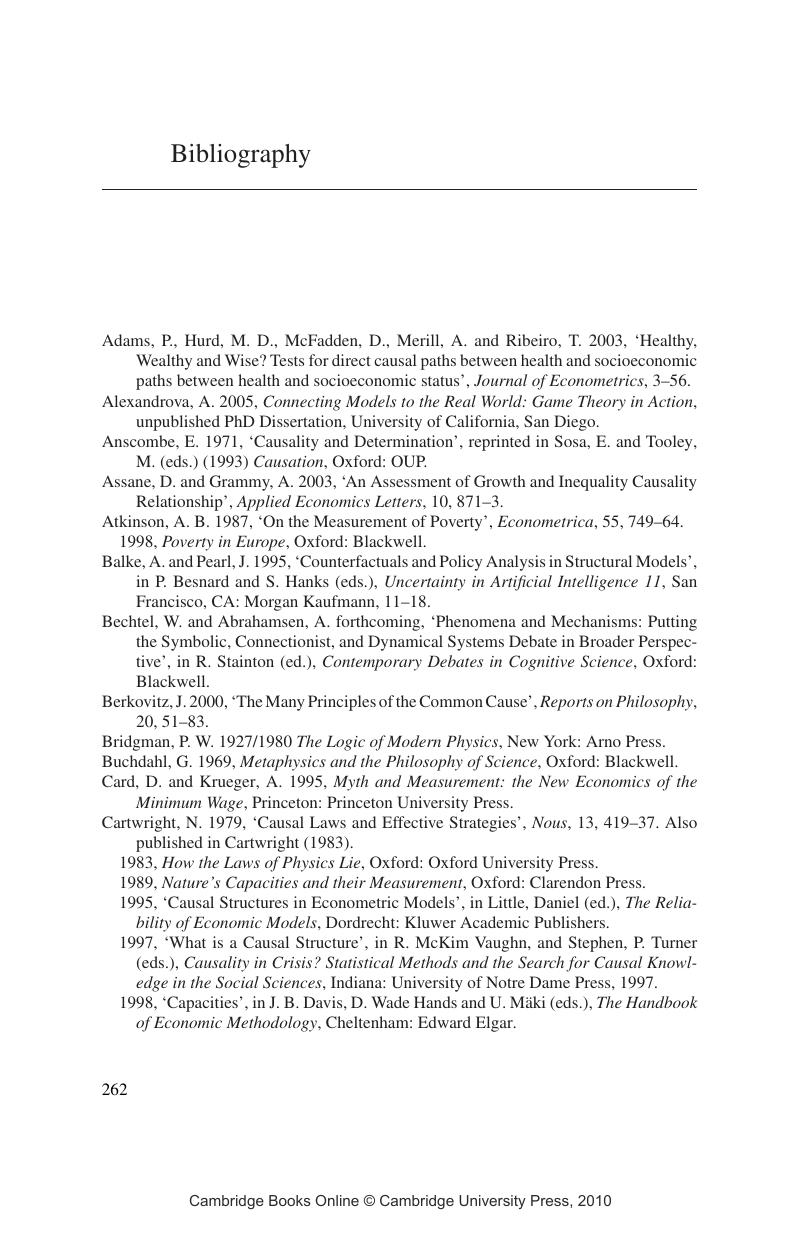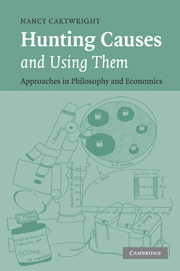Bibliography
Published online by Cambridge University Press: 03 December 2009
Summary

- Type
- Chapter
- Information
- Hunting Causes and Using ThemApproaches in Philosophy and Economics, pp. 262 - 267Publisher: Cambridge University PressPrint publication year: 2007

